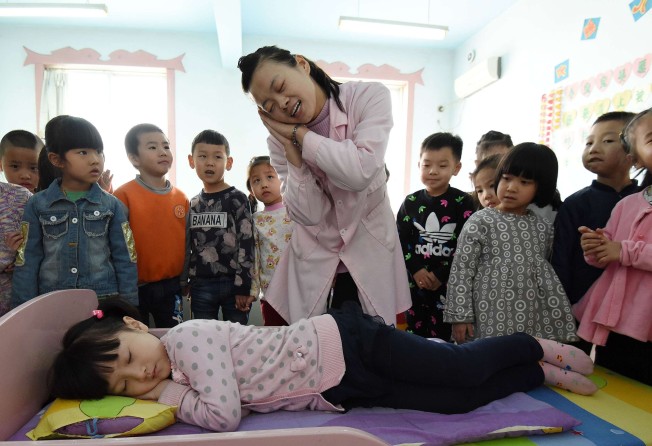A good night’s sleep just a dream for most Chinese
Survey of people aged 10 to 45 finds less than a quarter say they sleep well

A good night’s sleep is a dream for many in China with a poll published last week indicating that roughly three in every four respondents were sleep deprived due to causes ranging from heavy workloads to excessive use of smartphones.
The report on the sleep quality of 60,000 Chinese aged 10 to 45 was released by the China Sleep Research Society on Friday, World Sleep Day.
The day was established in 2008 by the World Association of Sleep Medicine to call attention to sleep disorders.
Among those polled in China, 73 per cent said they had problems falling asleep while 13 per cent of those reported being in “a state of pain” from their lack of sleep.
Only 24 per cent reported that their overall sleep quality was good.
An overwhelming 91 per cent of interviewees said they “still feel tired after sleep” and “couldn’t wake up because of not sleeping well”.
The survey also indicated that more than 60 per cent of respondents gave up sleep to spend more time working.
Even after finishing their work, many interviewees exhibited “sleep delay syndromes”, with 93 per cent of them scrolling through information on their mobile phones before going to sleep, the report found.
Only 5 per cent of the respondents were classified as having disciplined or regular sleeping times and hours.
Sleep quality surveys in other countries have pointed to similar problems.
A survey released by the American Psychological Association in 2013 found that American adults reported sleeping an average of 6.7 hours a night – less than the minimum recommendation of seven to nine hours.
More than 40 per cent of the 1,950 adults who took part in the American survey said their sleep quality was fair or poor, and that stress caused them to lie awake at night.
The China Sleep Research Society said that although people suffered sleep problems regardless of their jobs, income and social status, entrepreneurs of start-up companies suffered more significantly from bad quality sleep than those working in other industries.
These people generally “sleep late”, “sleep at irregular times” and “sleep too little”, according to the study.
More than 10 per cent of such entrepreneurs reported working as long as 48 hours without sleep, the society said.
Thirty-one per cent of the respondents said worrying about waking up early in time to get to work affected the quality of their sleep and 21 per cent reported dreaming about work-related matters.
More than 48 per cent of interviewees said they used time commuting on public transport to catch up on missed sleep.